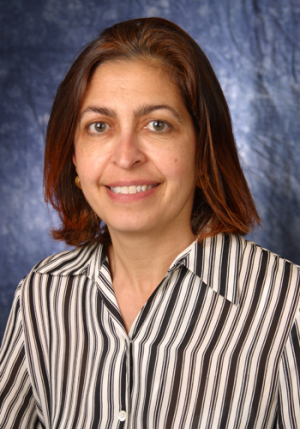A University of Houston engineering professor is one of two individuals behind the development of curriculum for a knowledge transfer program designed to assist Libyan engineers in modernizing their country’s infrastructure.
During the course of a year, Hanadi S. Rifai, UH professor of civil and environmental engineering, and Rice University’s Herman Brown Professor of Engineering Philip B. Bedient, developed the curricula focused on improving out-of-date utility systems and promoting future urban planning in Libyan cities.
The yearlong program will bring four groups of about 25 engineers from the Libyan government agency, Great Socialist People’s Libyan Arab Jamahiriya Housing and Infrastructure Board, to Houston for three-month intervals beginning in July.
“We hope the program will offer some ideas that could be taken back to help bring their infrastructure into the 21st century,” said Rifai. In most areas of Libya, cities sewage is ejected into the ocean and dated water treatment systems require separate faucets for drinking water rather than utilizing one source for all water needs.
James Thompson, president of AECOM Libya Housing and Infrastructure, said the knowledge transfer program is just one component of a more than $50 billion capital improvement plan managed by AECOM Technology Corporation and HIB. The two signed a five-year contract in 2007 establishing AECOM as overseer of the improvement program while HIB will work to construct housing units, upgrade existing infrastructure, roads, bridges and water systems.
Thompson’s longtime relationship with Bedient and the Rice professor’s relationship with Rifai, an alumna of the university, made the partnership for the transfer program possible locally. Here the program is two-fold, bringing the engineers and three senior HIB executives to the U.S. for training. HIB executives arrived in April and will remain in the U.S. for a full year participating in training to prepare them to maintain what’s currently in place and oversee future infrastructure.
The first group of engineers arrives in the city on July 15. Each will be trained to build and maintain utility systems, roads and homes in Libya. During their time in Houston, they will attend classes at the Hilton in the Texas Medical Center taught by professors from UH, Rice and Texas A&M.
At UH more than 30 faculty from the civil and environmental engineering department, English as a second language instructors from UH’s Language and Cultural Center and the college of technology are devoting time to teach courses on water and wastewater treatment, AutoCAD, road and bridge systems, residential development and language immersion.
The structure of the curriculum, Rifai said, was developed from personal essays written by participating engineers about their experience as well as from slideshows taken by AECOM employees showing the current infrastructure in Libya. The entire curriculum has been designed to take Libyan culture into account.
“We are really trying to be sensitive to those differences,” Rifai said, noting the program will adopt a Sunday through Friday schedule, since Libyans are not accustomed to Americas two-day weekend.
